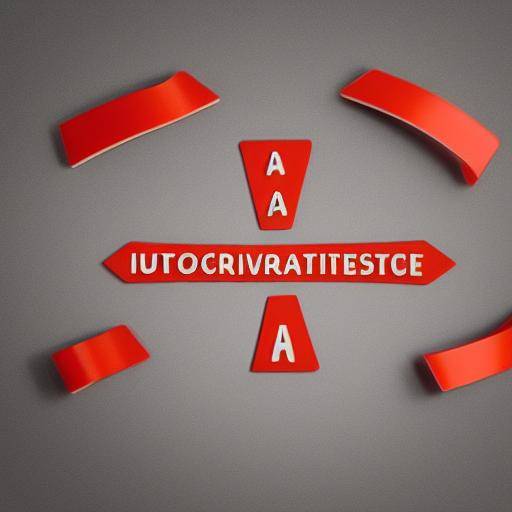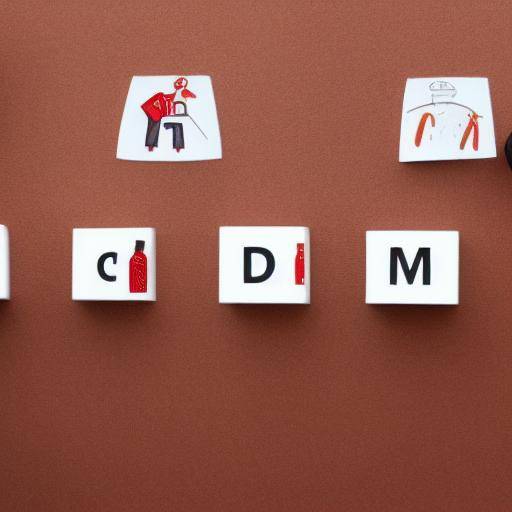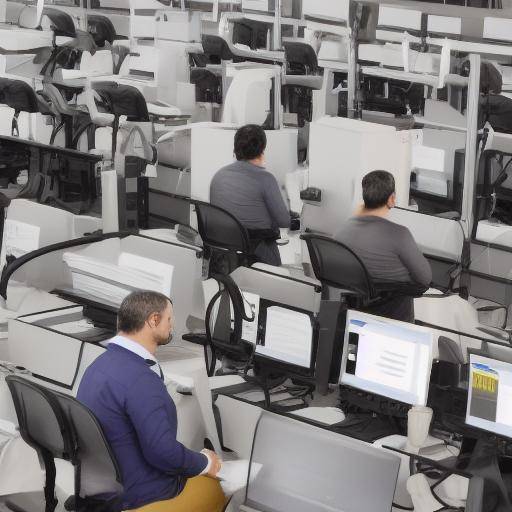
Self-discipline is a crucial ability to achieve consistency in the pursuit of personal goals and objectives. When it comes to achieving success, the ability to keep track and keep working towards our goals, even when things get tough, is fundamental. In this article, we will explore how self-discipline can help you maintain consistency in the pursuit of your goals, how to develop it and some practical strategies to apply it in everyday life.
Introduction
From achieving healthy goals to achieving professional success, consistency is key to achieving long-term success. Self-discipline plays a crucial role in this process, as it helps us to resist the temptation to abandon our goals when we face challenges or distractions. In this article, you will discover how self-discipline can be your ally on the way to achieving your goals and how to effectively implement it in your daily life.
History and Background
Self-discipline, as a concept, has deep roots in psychology and philosophy. From the teachings of ancient philosophers to modern studies in behavioral psychology, self-discipline has been the subject of analysis and debate throughout history.
The term self-discipline has its origins in Greek philosophy, where self-control and self-control were valued as fundamental virtues for a balanced life. Aristotle, for example, spoke of the importance of self-discipline in the pursuit of moral excellence and personal realization.
During the 20th century, psychologists like B.F. Skinner and Walter Mischel explored self-discipline as a key component of self-control and decision-making. Their research contributed to a deeper understanding of how self-discipline influences human behavior.
At present, self-discipline is considered fundamental in fields as diverse as time management, labour productivity, emotional health and personal success.
Deep analysis
Self-discipline is a quality that is often associated with achieving personal success, but its importance goes beyond simply achieving specific goals. Rather, it is about cultivating the ability to keep track even in adverse situations, resisting the temptation to yield to distractions or obstacles.
Research has shown that self-discipline is closely related to resilience and ability to overcome setbacks. People with a high degree of self-discipline tend to have greater clarity of goals, make more successful decisions and have a more consistent performance in various areas of their lives.
At the psychological level, self-discipline implies the ability to regulate emotions, control impulses and maintain focus on long-term goals. Learning to self-control in stressful or tempting situations is essential to achieving consistency in the pursuit of objectives.
Comprehensive review
Self-discipline can be applied in a wide range of situations, from adopting healthy habits to prosecuting professional goals. Here are some key areas where self-discipline plays a crucial role:
- Time management: Self-discipline is essential to prioritize, avoid procrastination and maintain focus on important tasks.
- Health and well-being: Adopting healthy habits, such as following a balanced diet or maintaining a regular exercise routine, requires self-discipline.
- Professional career: The ability to maintain the approach to professional development, to assume responsibilities and to face labour challenges is critical to success at work.
Comparative analysis
Self-discipline and consistency in objectives are inherently related. While self-discipline is the driving force that drives us to move forward despite the difficulties, the consistency in objectives gives us the necessary structure and approach to keep us on track to achieve our long-term goals.
Self-discipline focuses on internal control and will, while the consistency in objectives focuses on planning and perseverance over time. Both qualities complement each other, creating a solid framework for personal and professional success.
Maintaining consistency in the pursuit of objectives requires constant commitment, proactive attitude and the ability to adapt to the challenges that arise in the way. Self-discipline, for its part, provides us with the inner strength to overcome the resistance and temptations that can divert us from our goals.
Practical Tips and Accessible Tips
Developing self-discipline and maintaining consistency in the pursuit of objectives is a gradual process that requires effort and practice. Here are some practical tips to effectively develop and apply self-discipline:
- Establish clear and specific goals.
- Create a detailed action plan.
- It cultivates positive habits and eliminates distractions.
- Practice self-reflection and self-control.
- Keep a positive and persistent approach.
Industry Perspectives and Expert Reviews
The importance of self-discipline and consistency in achieving objectives is recognized in various professional fields. From business leaders to life coaches, those who have achieved success often attribute it to their ability to maintain the course and overcome obstacles through self-discipline.
Experts on productivity and personal development also emphasize the relevance of self-discipline in the formation of positive habits and in the achievement of long-term goals. These opinions support the idea that self-discipline is not only essential for individual success, but also for growth and innovation in the working environment.
Case Studies and Real Life Applications
To illustrate the practical application of self-discipline and consistency in objectives, consider some examples of success in different areas:
- The athlete who trains constantly to achieve his sports goals, overcoming obstacles and maintaining a constant commitment to his training.
- The entrepreneur who sets clear financial targets follows a strategic plan and persists despite the challenges on the way to the growth of his company.
These examples show that self-discipline and consistency are fundamental to achieving goals, both in the personal and professional spheres.
Future Trends and Predictions
As society moves forward, self-discipline and objective consistency will continue to play a crucial role in the success and well-being of people. With the growing awareness of the importance of self-care, personal development and productivity, the demand for effective strategies to maintain consistency in the pursuit of objectives is expected to increase in the future.
Trends in areas such as well-being and self-management also point towards a greater emphasis on the development of self-discipline and consistency as key skills for success in the working and personal environment.
Conclusion
Self-discipline and consistency in the pursuit of goals are fundamental pillars for personal and professional success. By developing the ability to maintain focus, resist distractions and persevere despite the challenges, we can enhance our ability to achieve our goals and realize our full potential.
In short, self-discipline drives us forward, while the consistency in objectives gives us the necessary structure and direction to achieve long-term success.
Frequently asked questions
How can I develop self-discipline in my daily life?
To develop self-discipline, it is important to set clear and specific goals, create a detailed action plan, eliminate distractions, practice self-reflection and maintain a positive and persevering approach.
What is the importance of consistency in achieving objectives?
Consistency in achieving objectives provides the necessary structure and approach to keep us on track to achieve our long-term goals. It helps to avoid procrastination and remain committed to our goals, even when we face challenges.
Why is it difficult to maintain self-discipline?
Maintaining self-discipline can be difficult because of the presence of temptations, distractions and internal resistance to changing rooted habits. However, with focus, practice and determination, it is possible to strengthen self-discipline.
What is the relationship between self-discipline and personal success?
Self-discipline is fundamental to personal success, as it allows us to resist short-term temptations for long-term goals. It helps to cultivate positive habits, maintain focus and persist despite obstacles.
How does self-discipline influence the development of healthy habits?
Self-discipline is essential for the development of healthy habits, as it implies the ability to resist the impulses that can sabotage our health goals, such as eating unhealthyly or avoiding exercise.
What is the impact of self-discipline in the working environment?
In the working environment, self-discipline is crucial for time management, effective decision-making and productivity maintenance. It helps professionals to keep the focus on their tasks, face challenges and achieve consistent results.
These frequent questions address key aspects related to self-discipline, objective consistency and their influence on personal and professional success.
With this article, you have gained a deep understanding of how self-discipline can help you maintain consistency in achieving your goals. Cultivating this skill will allow you to overcome obstacles, resist distractions and persevere in the pursuit of your goals, thus facilitating your path to personal and professional success. Don't hesitate to implement the shared tips and strategies to move towards your goals with determination and focus!














































